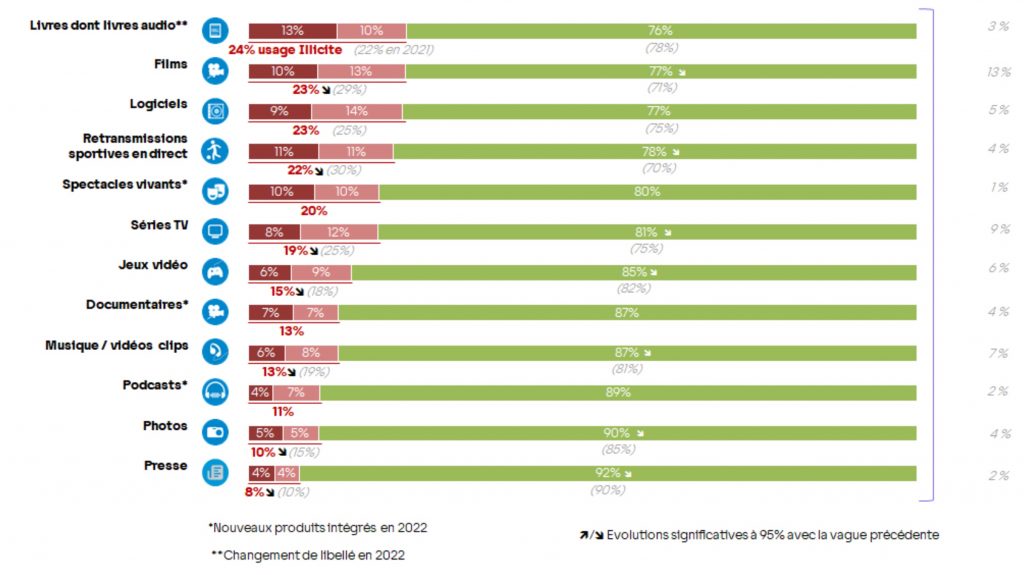In September, ARCOM, France’s Regulatory Authority for Audiovisual and Digital Communication, released the study Availability of video films on legal demand and on illegal sites, an analysis of the range of film content available online.
The corpus of films available on illegal sites was determined by analysis of the catalog of the main illegal services in France with more than 500,000 unique monthly visitors. Significantly, the report found that just three of the sites represented 25% of the total illegal audience. The ARCOM report did not identify those sites, but also in September, ACE shut down two large France-based illegal streaming sites of this magnitude.
The September report was a follow-up to ARCOM’s Barometer of the consumption of virtual cultural goods, a consumer survey released in December 2022, which found that 41% of Internet users consuming illicit content online cited “the weakness of legal offer” as a barrier to legal consumption. This was the second most frequently used argument after price.
18% of the consumers surveyed in the December report said it was difficult to find what they are looking for and 16% believe that the legal offer is too limited. The report found consumption of legal film, TV and music services to be highest (65%) among users 40 years or older, and just 12% among those aged 15-24.
However, that study also found piracy rates to be down: films and series TV by 6% each. 21% of piracy consumers use illegal ‘IPTV’ services. Sports was found to be the most pirated TV category, but ARCOM expects it to decline significantly in coming years as a result of site blocking regulations going into effect in Europe.

ARCOM’s September 2023 study was aimed to test these consumer claims against the reality of what was actually available legally, across the catalog of video on demand (VOD) and subscription (SVOD) services; which include nearly half (43%) of the 33,751 films released in French theatres from 1950 to 2021, or about 14,500 titles. The more recent the decade of release, the higher was the percentage of available films released during that decade.
Nearly all of these 14,500 titles (95%) were available through VOD offerings, while just 43% were available in SVOD catalogs. 57% of those available in VOD were available only in VOD (not SVOD). The more recent the film, the more likely it was to be available simultaneously via both VOD and SVOD services.
Conversely, less than 1/4 of the films released between 1950 and 1989 were available through legal services. 45% were French productions. A higher proportion of American productions (32%) were avalable through VOD & SVOD than were released in French theatres (27%).
Further reading
Availability of video films on legal demand and on illegal sites. Report. September 2023. ARCOM (Regulatory Authority for Audiovisual and Digital Communication – Autorité de régulation de la communication audiovisuelle et numérique)
2022 Barometer of the consumption of virtual cultural goods. Report. December 2022. ARCOM. Contains consumer data about demand for illegal services. (Regulatory Authority for Audiovisual and Digital Communication – Autorité de régulation de la communication audiovisuelle et numérique)
Why it matters
While the September report did reference some top piracy sites, it was mainly an assessment of films available online by age of film; not an analysis of the differences in demand between legal and infringing services.
Unlike the 2022 Barometer report released in December, the September 2023 report did not compare consumer demand between legal and pirate services, by age-of-film; nor did it sort out films by genre to see whether or not the genre influenced demand differently between pirate and legal services.
ARCOM is an administrative agency that resulted from the 2022 merger of the High Audiovisual Council (CSA) and the High Authority for the Distribution of Works and Protection of Rights on the Internet (HADOPI)











